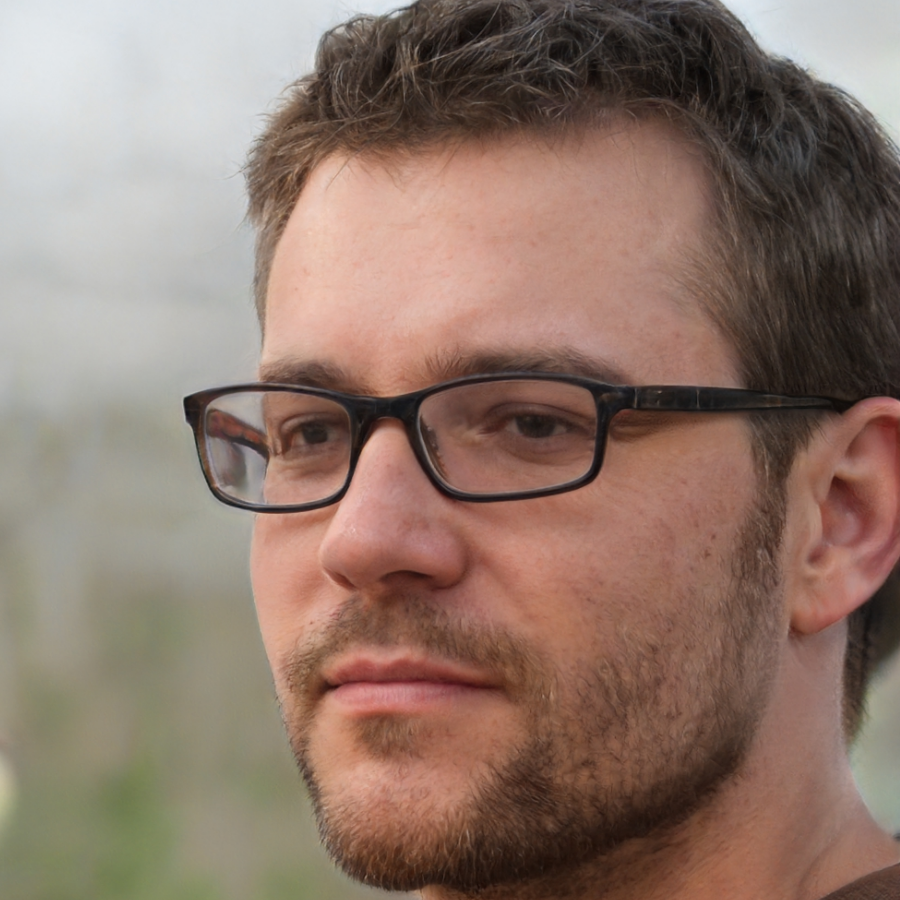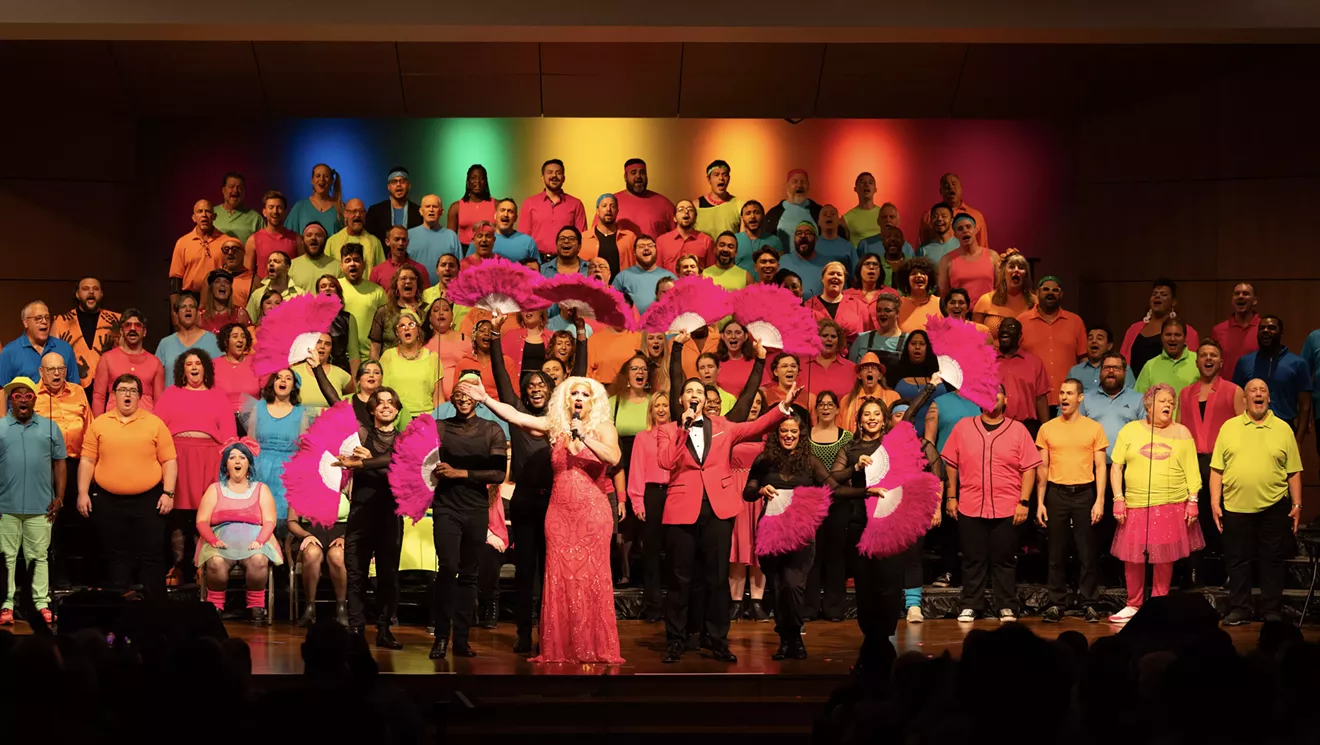Preview: Mi Familia with Pride Chorus Houston and Coro Gay Ciudad de México LGBTIQPA+

Last year, Pride Chorus Houston traveled to Minneapolis, Minnesota, where the Gay and Lesbian Association of Choruses (GALA Choruses) held its quadrennial festival, the largest gathering of LGBTQ+ choruses in the world.
There, they encountered their Mexico City-based counterpart, Coro Gay Ciudad de México LGBTIQPA+.
“We were blown away by them,” says David York, now in his third season as artistic director of Pride Chorus Houston, one of the nation’s oldest gay choruses in the United States. “And I’m happy to report that they were really pleased with what they saw in us as well.”
Casual conversations turned to friendship, and now, just over a year later, the two choruses will perform together for the first time during Mi Familia, a joint concert at the Wortham Theater Center on September 20 before the Houston chorus travels to Mexico City for two additional performances on November 28 and 29.
The concert marks the first time Pride Chorus Houston will perform with an international choir, and York says audiences are in for a treat when they see Coro Gay Ciudad de México LGBTIQPA+.
“They are a very extravagant and flamboyant chorus, so they’re bringing lots of energy, very colorful costumes, and their own brand of fabulous,” says York.
According to York, the Mexico City chorus is bringing their tried-and-true hits, with the current setlist including pieces with titles like “Pamela Anderson” – “The English translation to the first part of ‘Pamela Anderson’: ‘I love you so much / I watched your documentary yesterday’ and then it goes into details about that,” shares York – and “Muerte por Tetaso,” or “Death by Titslap.”
“Isn’t that fun?” adds York. “That’s very campy.”
When it came time to decide on the material Houston Pride Chorus would contribute to the show, York says popular Latin artists like Jennifer Lopez, Ricky Martin, Shakira, and Bad Bunny all came up.
“We started looking at these artists as being an accurate representation of what we wanted to say as a pride chorus in an international concert. In a way, we’re representing America and we’re representing Latin culture in our set,” says York.
Representation proved to be a bit trickier for his chorus, as York realized that the Mexico City chorus is more of a monoculture, meaning that almost all the members are Mexican by heritage.
“In the Houston Pride Chorus, we have a significant percentage, probably 15 percent of our chorus is Hispanic or Latino, and some of them are from Mexico, but a lot of them are not. They come from Venezuela, Colombia, Cuba, Puerto Rico, El Salvador – all these different Spanish-speaking countries are represented by Pride Chorus, so our experience of Latin culture is different than theirs,” explains York.
The setlist Houston Pride Chorus decided on will also feature “tailor-made” arrangements from different Spanish-language icons, including “Color Esperanza” by Argentine Diego Torres and a medley of music by Mexican superstar Juan Gabriel.
“While Juan Gabriel never publicly came out as gay, it’s a well-known secret, so we claim him. We are representing him loud and proud at the end of our concert,” says York.
A highlight of the program will be the premiere of a new piece of music composed by York and the artistic director of Coro Gay Ciudad de México LGBTIQPA+, Enrique Dunn.
“There’s a fair amount of attention around immigration in our chorus, and why people came to the United States, and what their relationship with their family is like, and as we talked about that, that’s where we stumbled onto the idea of Mi Familia. That is a common theme for Mexico City Chorus to sing about and us as well,” says York.
The idea resulted in a piece with four movements, with a melody and sweet refrain woven into each movement: “This is my family / just as we are / separated by distance / united by love.”
The members of each chorus were asked for interesting ways to express these thoughts using experiences from their personal lives or by creating fictionalized stories. The suggestions York and Dunn received were narrowed down to four, with each artistic director setting two for the piece.
The movements York set are titled “No Sabo,” a grammatically incorrect term used to refer to children from Spanish-speaking families who don’t speak Spanish, and “Lullaby.”
“One of the choristers is a no sabo kid, and he wrote this beautiful story about his relationship with his grandmother, who is from Peru,” explains York. “He’d come home from school. She talked to him in Spanish; he would talk to her in English. They had about 50 common words in their vocabulary, and it was the same conversation every day.”
Another chorister, who wrote “a really lovely, poignant lyric about what it is to be a parent,” inspired “Lullaby,” which is about two fathers, parents to three adopted children, two of whom are from Mexico.
“The current political situation is risky for them,” says York. “The children are citizens, but they aren’t American-born citizens, and so that created some fear in their family.”
York says the melody and lyrics will be altered in both movements to reflect each story. “In the ‘No Sabo’ lyric, it’s ‘This is my family / just as it is / separated by language / united by love.’ And in the one about the fathers, it’s ‘This is my family / just as we are / separated by fear / united by love.’”
Dunn set the last two stories, and York describes both movements as “very grand and epic.” One is titled “Fronteras,” or “Borders,” a non-narrative movement about two trans women who both receive the medical treatment they need in Mexico but find their ability to connect compromised by challenges at the border.
“It’s a very complex idea, and [Dunn] captures the emotion of it really powerfully,” says York. “And then the last one is called ‘Recuerdo,’ and it talks about connecting with loved ones of the departed, people who are not here anymore.”
Though the political climate has changed drastically since York and Dunn began discussing a potential collaboration last year, York says he wants to minimize political confrontation in every aspect of the concert.
“By and large, we’re all acutely aware of the oppression that is being thrown at, if not individually, then to people we love, people close to us, and people we care about,” says York. “We don’t need to frame that. We don’t need to resolve it. We don’t need to advocate for or against it. All we need to do is be family, to be a unified voice for the healing power of love and music, and just let that emotional experience be the tincture and the recipe for how we survive this incredibly complex and turbulent time.”
Mi Familia is scheduled for 8 p.m. Saturday, September 20, at Wortham Theater Center, 501 Texas. The concert will be translated with English and Spanish surtitles. For more information, visit pridechorus.org. $28.75-$74.75.

Reign Bowers is an outdoor enthusiast, adventure seeker, and storyteller passionate about exploring nature’s wonders. As the creator of SuperheroineLinks.com, Reign shares inspiring stories, practical tips, and expert insights to empower others—especially women—to embrace the great outdoors with confidence.




Post Comment